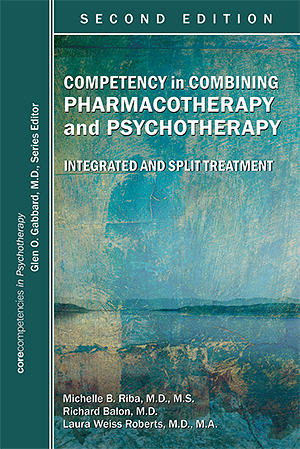Sections
Excerpt
Attempting to determine the best way to sequence psychopharmacology and psychotherapy in a split/collaborative treatment arrangement is a real and significant problem (Beitman et al. 2003). Although research has shown that the combination of both types of treatments is effective for patients with many kinds of psychiatric diagnoses (Guidi et al. 2011, 2016) and that the split/collaborative treatment model has become the default paradigm in most clinical organizations (Gitlin and Miklowitz 2016), the research to date has not provided us with a clear guideline for sequencing specific treatments and treatment modalities. Furthermore, the guidelines that do exist based on general considerations of evaluation or treatment of certain types of disorders are focused on integrated treatment, in which a psychiatrist provides both the psychotherapy and medication management (Silverman et al. 2015). Split/collaborative treatment adds other variables that make the logistics and understanding of the sequence more complicated.
Access content
To read the fulltext, please use one of the options below to sign in or purchase access.- Personal login
- Institutional Login
- Sign in via OpenAthens
- Register for access
-
Please login/register if you wish to pair your device and check access availability.
Not a subscriber?
PsychiatryOnline subscription options offer access to the DSM-5 library, books, journals, CME, and patient resources. This all-in-one virtual library provides psychiatrists and mental health professionals with key resources for diagnosis, treatment, research, and professional development.
Need more help? PsychiatryOnline Customer Service may be reached by emailing [email protected] or by calling 800-368-5777 (in the U.S.) or 703-907-7322 (outside the U.S.).



